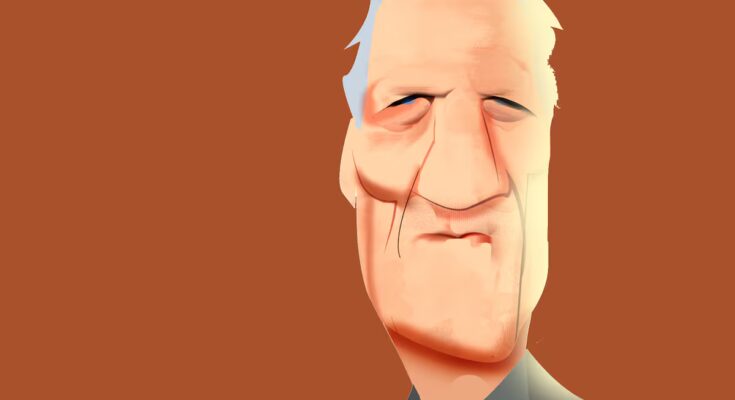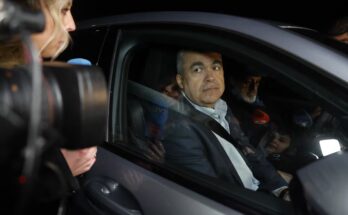For director Werner Herzog, 83, the truth that matters transcends simple facts. Since the 1990s he has used a term he coined himself: ecstatic truth, which refers to poetic truth, emotional truth, a stylized truth that illuminates and moves. “It’s not about providing fake news, it’s about providing good news,” he clarified forcefully in front of a packed auditorium at the 92NY cultural center in New York, where he was presenting his seventh book, The future of truth.
He cited the quote at the beginning of his documentary as an example Lessons of the Darkness (1992): “The collapse of the stellar universe will occur – like creation – in grandiose splendor,” which he attributed to the philosopher Blaise Pascal. “The quote was entirely my own invention. Honestly, I don’t think Pascal could have said it any better, but it allowed me to take the viewers from a high place and keep them there throughout the documentary.”
For the director, truth is a construct for dealing with everyday life, and since we need beauty more than ever, it is up to us to transform it into a glorious experience.
Herzog has had a prolific career, covering topics as absurd as they are intriguing. He has dedicated films to the representation of mysterious figures such as Nosferatu or Kaspar Hauser. He has made documentaries about volcanoes, one man’s obsession with Alaskan brown bears, the devastation of Kuwait after the first Gulf War, death row assassins, Gorbachev, cave paintings, Antarctica and meteorite impacts, among others.
Ghost elephantswhich will premiere in March 2026 on Disney+, follows South African explorer Steve Boyes in Angola as he tries to determine if there is a species of giant elephant unknown to humans. Herzog’s curiosity knows no limits. The director – who in addition to having made more than 70 films, has acted in and directed more than 20 operas – confesses that he would also have liked to be an athlete, a mathematician or a chef.
He has made more documentaries than fiction films, not so much out of preference but due to financing difficulties. For him the key is to continue creating without waiting for idyllic conditions. “If you don’t understand the rules of cinema, you’re not just wasting your time, but your life,” says the director, who won the Golden Lion for Lifetime Achievement at this year’s Venice Film Festival. His best advice for the younger generation is: “Do it anyway.” A defender of practice over theory, the director founded his own film school, Rogue Film School, through which he offers cinematographic acceleration seminars and workshops in which around 50 directors from different countries commit to shooting and editing a short film in nine days and screening it in the last.
His cinema is visceral and wild. It involves risks; it is unpredictable. One of his most complex and acclaimed productions was Fitzcarraldo (1982), which exemplifies this perfectly. It tells the story of a man obsessed with the idea of building an opera house in the middle of the Peruvian jungle, something as risky as Herzog’s decision to film with a crew of 14 (according to him, one of them was bitten by a poisonous snake and had to have his foot amputated), without an assistant or walkie-talkie. They built a pier, created a pulley system, dragged a 320-ton ship over the mountains, endured torrential rain, saw the set burned by locals, crashed two of their planes, and the director even sold his boots for fish to feed the crew.
Furthermore, Mick Jagger and Jason Robards dropped out of filming, while Herzog opted for the eccentric Klaus Kinski, his favorite actor, with whom he had a turbulent relationship, immortalized in the documentary. My best friend. According to the director, Kinski could scream for an hour with enough force to shatter glass, and the only reason he was able to direct the film amidst that chaos was the depth of his vision and his inner fire. His project and his life merge into one; a commitment that becomes vital in everything he does. On one occasion he threatened to shoot Kinski if he left the set; in another, he urged Joshua Oppenheimer, who he helped edit The act of killing – to keep intact a scene he was thinking of cutting, warning him that otherwise “his life would be in vain.”
British documentarian André Singer, who has been involved in 17 of Herzog’s films since 1989 — either as producer, executive producer or co-director — highlights via email the director’s “extraordinary talent” for tackling subjects “in surprising and unexpected ways.” He illustrates this with the interview Herzog conducted with Mikhail Gorbachev, the last leader of the USSR, which begins: “Mr. President, I’m German, and probably the first German you ever met wanted to kill you,” alluding to when the Soviet leader refused to cooperate with East German President Erich Honecker, which led to the fall of the Berlin Wall.
Jake Friedman, an artist representative and Herzog admirer, shared an anecdote himself that also captures the original, irreverent and refreshing perspective that defines everything the director does. When Friedman was introduced to him and told that he lived in New York, Herzog (who lives in Los Angeles) replied: “Nothing ever happened in New York! The most important things always happened in Los Angeles.” Friedman says the comment left him so stunned that he didn’t dare say anything else.
Singer also highlights the director’s ability to visualize and hold an entire narrative intact in his mind before turning on the camera. “In 2008, Sky Arts asked Herzog to make a short film about the air O sweet girland Herzog, who had just read a book about the Mursi tribe in Ethiopia, had a vision: to bring together young couples from that tribe who would look each other in the eye and then turn their backs and walk away. A few weeks later, we camped in the Ethiopian wilderness and shot a mesmerizing short film, exactly as I had imagined it from the beginning.”
The director’s unique and passionate vision inspires respect, admiration and fanaticism among professionals of all disciplines. “Every day I thank God that I lived in the same era as Werner Herzog,” said Jerry Saltz, art critic of The New York Timesduring Herzog’s presentation at 92NY.
Herzog is the father of three children, and his third wife is photographer Lena Pisetski, 28 years his junior, who says that during their first year together he had no idea about his career (he told her he was a stunt coordinator). They have been together for three decades.
Both professionally and personally, Werner Herzog continues to challenge reality with the same belief: that beauty always tells the truth.
Sign up to our weekly newsletter to get more English-language news coverage from EL PAÍS USA Edition


